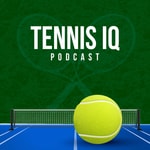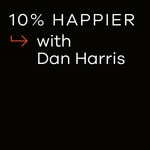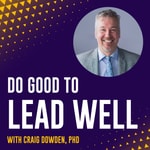Tennis IQ Podcast – Details, episodes & analysis
Podcast details
Technical and general information from the podcast's RSS feed.

Tennis IQ Podcast
Tennis IQ Podcast
Frequency: 1 episode/8d. Total Eps: 228

Recent rankings
Latest chart positions across Apple Podcasts and Spotify rankings.
Apple Podcasts
🇨🇦 Canada - tennis
31/07/2025#26🇬🇧 Great Britain - tennis
31/07/2025#42🇩🇪 Germany - tennis
31/07/2025#52🇺🇸 USA - tennis
31/07/2025#17🇫🇷 France - tennis
31/07/2025#31🇨🇦 Canada - tennis
30/07/2025#22🇬🇧 Great Britain - tennis
30/07/2025#42🇩🇪 Germany - tennis
30/07/2025#42🇺🇸 USA - tennis
30/07/2025#16🇫🇷 France - tennis
30/07/2025#21
Spotify
No recent rankings available
Shared links between episodes and podcasts
Links found in episode descriptions and other podcasts that share them.
See all- https://self-compassion.org/
242 shares
- https://TiebreakerPsych.com
62 shares
- https://PerformanceXtra.com
61 shares
- https://youtu.be/T4wJIa9C5qk
4 shares
- https://youtu.be/B3OoH_O9Y-U
4 shares
RSS feed quality and score
Technical evaluation of the podcast's RSS feed quality and structure.
See allScore global : 38%
Publication history
Monthly episode publishing history over the past years.
Ep. 188 - Beware! Anger is a Pleasurable Emotion
samedi 31 août 2024 • Duration 50:58
In this episode, Brian and Josh discuss anger and what people often get wrong about it. The conversation is based on an article entitled “4 Things About Anger Everyone Should Know." The co-hosts review their thoughts on each of the four things noted in the article and provide practical implications of understanding anger for tennis players.
Article: https://www.thefriendlymind.com/4-things-about-anger-everyone-should-know/
Tennis IQ Patreon Page: https://www.patreon.com/tennisiqpodcast/membership
To learn more about Josh and Brian's backgrounds and sport psychology businesses, go to TiebreakerPsych.com and PerformanceXtra.com. If you have feedback about the show or questions on the mental game in tennis you can email us attennisiqpodcast@gmail.com. If you’re enjoying the show please rate us on your favorite podcast platform including Apple Podcasts and Spotify and write a review. Don’t forget to subscribe on YouTube or your podcast platform of choice (Apple Podcasts, Spotify, etc.) to stay up to date on future episodes.
Ep. 187 - Is the SMART Goals Framework Overrated?
mercredi 21 août 2024 • Duration 40:18
In this episode, Brian and Josh discuss the differences between “SMART goals” and “open goals”. They outlined the benefits and drawbacks of the popular “SMART goals” approach and introduced open goals as an alternative. Additionally, they reviewed process goals, learning goals, and other concepts related to the goal setting and attainment process.
Tennis IQ Patreon Page: https://www.patreon.com/tennisiqpodcast/membership
To learn more about Josh and Brian's backgrounds and sport psychology businesses, go to TiebreakerPsych.com and PerformanceXtra.com. If you have feedback about the show or questions on the mental game in tennis you can email us at tennisiqpodcast@gmail.com. If you’re enjoying the show please rate us on your favorite podcast platform including Apple Podcasts and Spotify and write a review. Don’t forget to subscribe on YouTube or your podcast platform of choice (Apple Podcasts, Spotify, etc.) to stay up to date on future episodes.
Ep. 178 - Be More Concerned with Your Present Than Your Past or Future
mardi 28 mai 2024 • Duration 44:14
"Never confuse yourself by visions of an entire lifetime at once. That is, do not let your thoughts range over the whole multitude and variety of the misfortunes that may befall you, but rather, as you encounter each one, ask yourself, ‘What is there unendurable, so insupportable, in this?’ You will find that you are ashamed to admit defeat. Again, remember that it is not the weight of the future or the past that is pressing upon you, but ever that of the present alone." - Marcus Aurelius In this episode, Brian and Josh consider the above quote from the eighth book of Marcus Aurelius' Meditations, and how it relates to a tennis player's experience in a match and over the course of a career. This ancient wisdom can help us to be be our best selves in the present moment.
Tennis IQ Patreon Page: https://www.patreon.com/tennisiqpodcast/membership
To learn more about Josh and Brian's backgrounds and sport psychology businesses, go to TiebreakerPsych.com and PerformanceXtra.com. If you have feedback about the show or questions on the mental game in tennis you can email us at tennisiqpodcast@gmail.com. If you’re enjoying the show please rate us on your favorite podcast platform including Apple Podcasts and Spotify and write a review. Don’t forget to subscribe on YouTube or your podcast platform of choice (Apple Podcasts, Spotify, Google, etc.) to stay up to date on future episodes.
Ep. 91 - Triumph and Disaster
Episode 91
samedi 9 juillet 2022 • Duration 44:18
"If you can meet with Triumph and Disaster
And treat those two impostors just the same"
This quote appears above the door leading to Wimbledon's Centre Court and it is a challenge to all players who step on to that most famous court. In this episode, Josh and Brian discuss the excerpt from Rudyard Kipling's poem 'If-' and relate it to the difficulties players encounter during a tennis match. Additionally, they relate this quote to one from Theodore Roosevelt's 'The Man in the Arena' speech. Both quotes provide important viewpoints and perspectives to consider while watching and playing tennis.
Text of 'If-': https://poets.org/poem/if
Text of 'The Man in the Arena' speech: https://www.theodorerooseveltcenter.org/Learn-About-TR/TR-Encyclopedia/Culture-and-Society/Man-in-the-Arena.aspx
Blog post explaining Triumph and Disaster: https://performancextra.com/stoicism-in-sport/triumph-and-disaster-treat-those-two-imposters-the-same/
Ep. 90 - The Value of Mini-Wins
Episode 90
lundi 4 juillet 2022 • Duration 42:10
In this episode, Brian and Josh discuss the concept of mini-wins and mini-celebrations. Tennis players can look to celebrate controllable sources of “mini-wins” that they successfully complete in practice and matches. These could include performing a stroke correctly during practice when they are trying to make a technical adjustment, celebrating successfully completing their pre-match routine, and celebrating going through the in-between point routine in matches. Mini-wins have positive benefits physiologically and psychologically.
Dan Abrahams post on LinkedIn: https://www.linkedin.com/posts/dan-abrahams-b72a306_i-was-re-listening-to-joe-rogan-interview-activity-6947448262857531392-RmZf?utm_source=linkedin_share&utm_medium=member_desktop_web
To learn more about Josh and Brian's backgrounds and sport psychology businesses, go to TiebreakerPsych.com and PerformanceXtra.com. If you have feedback about the show or questions on the mental game in tennis, email us at TennisIQPodcast@gmail.com or use the hashtag #tennisIQ on Twitter. Don’t forget to subscribe on YouTube or your podcast platform of choice (Spotify, Apple, Google, etc.) to stay up to date on future episodes.
Ep. 89 - Thoughts on Playing in Extreme Heat
Episode 89
vendredi 24 juin 2022 • Duration 42:43
In this episode, Brian and Josh respond to a listener question about playing in the extreme heat. Topics discussed include the importance of preparation, the need to control the controllables, and how understanding your body and limits prior to a match gives you a better chance to perform at a high level. Additionally, they review the importance of maintaining perspective and connecting to a deeper purpose of improvement and performance excellence in order to embrace extreme weather conditions and heat.
References:
Craighead, D. H., Shank, S. W., Gottschall, J. S., Passe, D. H., Murray, B., Alexander, L. M., & Kenney, W. L. (2017). Ingestion of transient receptor potential channel agonists attenuates exercise‐induced muscle cramps. Muscle & Nerve, 56(3), 379-385. https://doi.org/10.1002/mus.25611
Gomes, R. V., Moreira, A., Lodo, L., Nosaka, K., Coutts, A. J., & Aoki, M. S. (2013). Monitoring training loads, stress, immune-endocrine responses and performance in tennis players. Biology of Sport, 30(3), 173-180. doi: 10.5604/20831862.1059169
Kovacs, M. S. (2007). Tennis physiology: Training the competitive athlete. Sports Medicine, 37(3), 189-198. https://doi.org/10.2165/00007256-200737030-00001
Kovacs, M. S., & Baker, L. B. (2014). Recovery interventions and strategies for improved tennis performance. British Journal of Sports Medicine, 48, i18-i21. doi: 10.1136/bjsports-2013-093223
Ojala, T., & Häkkinen, K. (2013). Effects of the tennis tournament on players' physical performance, hormonal responses muscle damage and recovery. Journal of Sports Science and Medicine, 12, 240-248.
Ranchordas, M. K., Rogersion, D., Ruddock, A., Killer, S. C., & Winter, E. M. (2013). Nutrition for tennis: Practical recommendations. Journal of Sports Science & Medicine, 12(2), 211-224.
Reid, M., & Duffield, R. (2014). The development of fatigue during match-play tennis. British Journal of Sports Medicine, 48, i7-i11. doi: 10.1136/bjsports-2013-093196
To learn more about Josh and Brian's backgrounds and sport psychology businesses, go to TiebreakerPsych.com and PerformanceXtra.com. If you have feedback about the show or questions on the mental game in tennis, email us at TennisIQPodcast@gmail.com or use the hashtag #tennisIQ on Twitter. Don’t forget to subscribe on YouTube or your podcast platform of choice (Spotify, Apple, Google, etc.) to stay up to date on future episodes.
Ep. 88 - Strategies For Automatic Negative Thoughts
Episode 88
jeudi 16 juin 2022 • Duration 40:14
In this episode, Brian and Josh discuss self-talk strategies to handle Automatic Negative Thoughts (ANT’s). Certain strategies mentioned were inspired from the book Chatter by Ethan Kross including distancing from the problem (seeing it from an outsider’s perspective), journaling, and using one’s own voice when communicating through self-talk. Additionally, the co-hosts reviewed the importance of developing one’s personal philosophy and building character when it comes to developing effective self-talk strategies.
To learn more about Josh and Brian's backgrounds and sport psychology businesses, go to TiebreakerPsych.com and PerformanceXtra.com. If you have feedback about the show or questions on the mental game in tennis, email us at TennisIQPodcast@gmail.com or use the hashtag #tennisIQ on Twitter. Don’t forget to subscribe on YouTube or your podcast platform of choice (Spotify, Apple, Google, etc.) to stay up to date on future episodes.
Ep. 87 - Lessons from Roland Garros 2022 via Swiatek, Gauff, Nadal, and Ruud
Episode 87
lundi 6 juin 2022 • Duration 43:48
In this episode, Brian and Josh review the 2022 French Open. They discuss Iga Swiatek and her performance in the tournament which culminated with a 6-1 6-3 victory in the championship match over Coco Gauff. This victory furthered her current winning streak to 35 matches and is her second Roland Garros title and second major title. Additionally, the co-hosts chatted about Rafael Nadal’s victory in the final over Casper Ruud 6-3 6-3 6-0 which was Nadal’s 14th Roland Garros title and 22nd major title. For both finalists, Coco Gauff and Casper Ruud, it was their first major final and a key step in the progress of their careers. For all four finalists, their mindsets and mental games were key contributing factors in their success; topics discussed included the importance of prioritizing mental skills, utilizing one’s platform to promote social change, and the importance of character.
To learn more about Josh and Brian's backgrounds and sport psychology businesses, go to TiebreakerPsych.com and PerformanceXtra.com. If you have feedback about the show or questions on the mental game in tennis, email us at TennisIQPodcast@gmail.com or use the hashtag #tennisIQ on Twitter or Instagram. Don’t forget to subscribe on YouTube or your podcast platform of choice (Spotify, Apple, Google, etc.) to stay up to date on future episodes.
Ep. 86 - How To Deal With Slumps
jeudi 2 juin 2022 • Duration 52:03
In this episode, Brian and Josh discuss strategies for how tennis players can handle slumps. Slumps are times when players have a losing streak, lose more matches than they are accustomed to, or simply when a player has a period of time when they aren’t playing at their best. The co-hosts talked about research relating to the factors that determine how a player handles a slump, discussed the impact of psychological momentum, and reviewed the importance of how an individual appraises their slump.
Research study mentioned in the episode: “Overcoming performance slumps: Psychological resilience in expert cricket batsmen” - Chris Brown, Joanne Butt, and Mustafar Sarkar of Sheffield Hallam University http://shura.shu.ac.uk/23679/1/Brown%2C%20Butt%2C%20Sakar%20Performance%20slumps%20resilience%202018.pdf
To learn more about Josh and Brian's backgrounds and sport psychology businesses, go to TiebreakerPsych.com and PerformanceXtra.com. If you have feedback about the show or questions on the mental game in tennis, email us at TennisIQPodcast@gmail.com or use the hashtag #tennisIQ on Twitter or Instagram. Don’t forget to subscribe on YouTube or your podcast platform of choice (Spotify, Apple, Google, etc.) to stay up to date on future episodes.
Ep. 85 - Marcus Daniell and Making an Impact
Episode 85
dimanche 29 mai 2022 • Duration 48:41
Marcus Daniell is a professional tennis player from New Zealand and the Founder & Executive Director of High Impact Athletes (https://highimpactathletes.org/). He is an Olympic bronze medallist tennis player with 5 ATP titles, quarterfinal appearances at both Wimbledon and the Australian Open (twice), and numerous caps for the NZ Davis Cup Team. He has been Giving Effectively since 2014. On January 4th, 2021, Marcus took the Giving What We Can pledge to donate at least 10% of his annual winnings to effective organisations for the rest of his life. Alongside his tennis career, Marcus has completed a B.A. from Massey University in Psychology and Spanish and has been awarded the Arthur Ashe Humanitarian Award for his work with HIA, joining recipients such as Nelson Mandela and Roger Federer.
In this conversation, Brian and Josh speak with Marcus about his career and playing with an impactful purpose.
Donate via High Impact Athletes: https://highimpactathletes.org/donate









